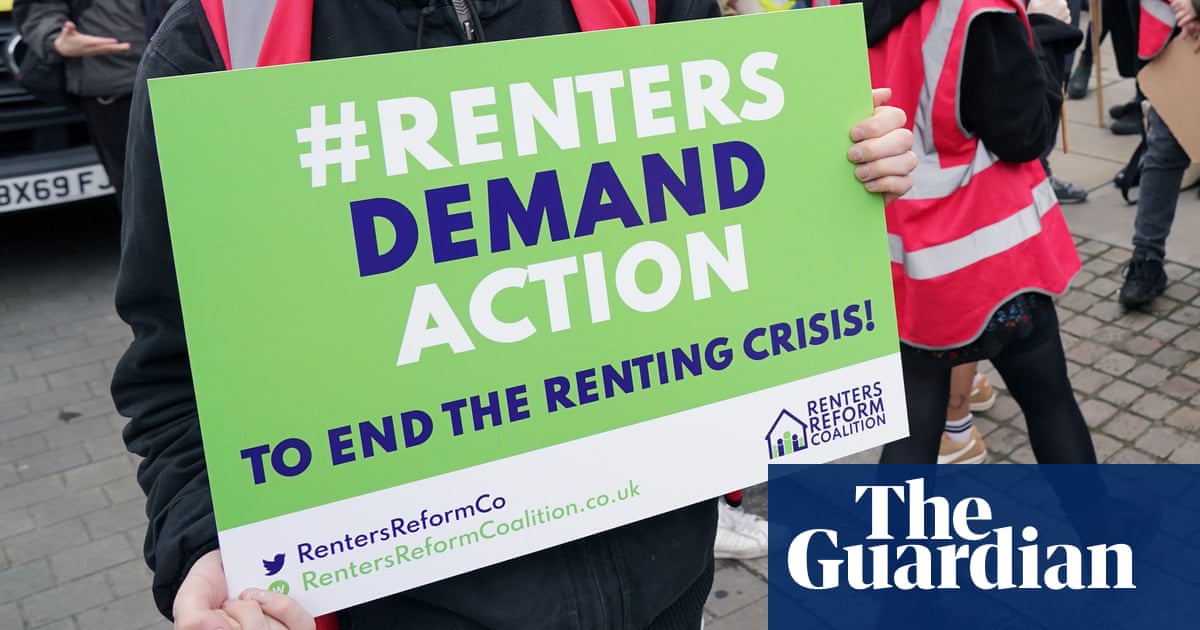
Private landlords in England are earning £1.6bn a year in housing benefit in return for providing “non-decent” homes, in what Sadiq Khan has described as a scandal.
The capital is the worst affected region, with £500m in welfare money going on privately rented homes that are in a state of disrepair, cold, damp, lacking modern facilities or do not meet health and safety standards, according to City Hall analysis.
More than quarter of a billion pounds in welfare is also being spent annually on non-decent homes in the north-west and £173m in the east of England. An additional £7.3bn is being paid in annual rent by tenants to private landlords for non-decent homes.
Renters described the estimated spending as “an outrage” and Khan, the mayor of London, is stepping up calls for the government to introduce the reforms to the private rented sector it first promised in its 2019 election manifesto. Five million households rent from private landlords in England and Wales – up 28% in a decade, the 2021 census showed.
“It’s just a money-making scheme,” said Sylla, a mother of three children whose £1,800-a-month rent in east London is paid entirely by housing benefit, despite the private landlord failing to fix persistent problems with broken heating, leaks and a faulty toilet. “They really don’t care about your wellbeing.”
The figures came amid fresh concerns about overcrowding. The National Housing Federation said 310,000 children in England were forced to share a bed with parents or siblings and one in every six children – 1.9 million – lived in cramped conditions. Parents in an estimated 180,000 families were having to sleep in the living room, bathroom, hallway or kitchen.
Michael Gove, the secretary of state for levelling up, housing and communities, last year announced plans for a renters reform bill that would “slash” the amount of housing benefit spent with landlords renting out non-decent homes and ban “no fault” evictions, but the bill has been delayed.
“It is a scandal that some private landlords are profiting from letting sub-standard housing that is unfit for 21st-century living,” said Khan. “Renters would feel more secure raising complaints about the condition of their property if they didn’t face the threat of arbitrary eviction … The government should also give me the power to drive up standards and introduce a rent freeze in London.”
The London Renters Union said housing benefit had become “a free handout to private landlords, and public money would be better spent increasing the stock of social homes”.
Ben Beadle, the chief executive of the National Residential Landlords Association, responded by calling on councils to use existing laws “to enforce the powers they already have to tackle the minority of sub-standard homes in the rental market”. He said Khan’s desired rent freeze would “drive responsible landlords out of the market … and leave them at the mercy of rogue and criminal landlords”.
But the Generation Rent campaign group called for tougher penalties for landlords of unsafe homes and said “increasing reliance on the private sector to provide housing has resulted in a higher bill for the public purse with nothing to show for it but poorer living standards.”
A spokesperson for the Department for Levelling Up, Housing and Communities said: “Councils should use the powers we’ve given them to crack down on rogue landlords, including issuing fines of up to £30,000 and banning those who rent out unsafe homes.”
They said the government planned to “fundamentally reform the sector and level up housing quality in this country”, including by introducing the first legally binding decent homes standard for private rent.
They added: “Evidence shows rent controls in the private sector do not work, leading to declining standards and a lack of investment and may encourage illegal subletting.”












